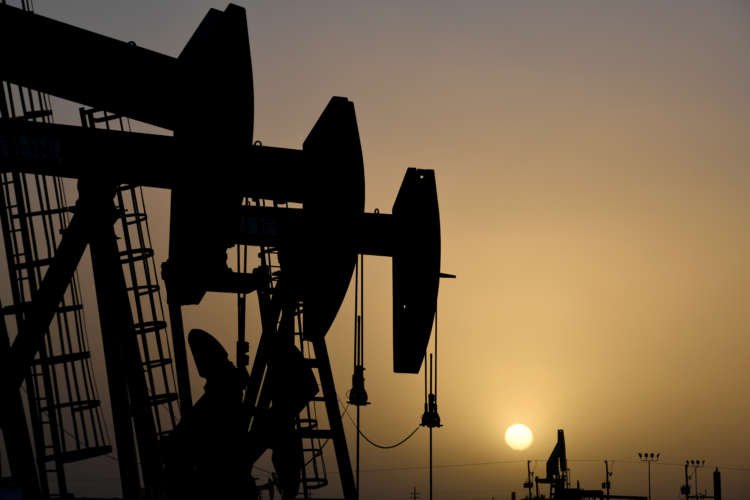OPEC, U.S. oil firms expect subdued shale rebound even as crude prices rise
Published by linker 5
Posted on February 22, 2021
4 min readLast updated: January 21, 2026

Published by linker 5
Posted on February 22, 2021
4 min readLast updated: January 21, 2026

By Alex Lawler and Jennifer Hiller
LONDON/HOUSTON (Reuters) – OPEC and U.S. oil companies see a limited rebound in shale oil supply this year as top U.S. producers freeze output despite rising prices, a decision that would help OPEC and its allies.
OPEC this month cut its 2021 forecast for U.S. tight crude, another term for shale, and expects production to decline by 140,000 barrels per day to 7.16 million bpd. The U.S. government expects shale output in March to fall about 78,000 bpd to 7.5 million bpd. [OPEC/M]
The OPEC forecast preceded the freezing weather in Texas, home to 40% of U.S. output, that has shut wells and curbed demand by regional oil refineries. The lack of a shale rebound could make it easier for OPEC and its allies to manage the market, according to OPEC sources.
“This should be the case,” said one of the OPEC sources, who declined to be identified. “But I don’t think this factor will be permanent.”
While some U.S. energy firms have increased drilling, production is expected to remain under pressure as companies cut spending to reduce debt and boost shareholder returns. Shale producers also are wary that increased drilling would quickly be met by OPEC returning more oil to the market.
‘MORE DISCIPLINE’
“In this new era, (shale) requires a different mindset,” Doug Lawler, chief executive of shale pioneer Chesapeake Energy Corp, said in an interview this month. “It requires more discipline and responsibility with respect to generating cash for our stakeholders and shareholders.”
That sentiment would be a welcome development for the Organization of the Petroleum Exporting Countries, for which a 2014-2016 price slide and global glut caused partly by rising shale output was an uncomfortable experience. This led to the creation of OPEC+, which began cutting output in 2017.
OPEC+ is in the process of slowly unwinding record output curbs made last year as prices and demand collapsed due to the pandemic. Alliance members will meet on March 4 to review demand. For now, it is not seeing history repeat itself.
“U.S. shale is the key non-OPEC supply in the past 10 years or more,” said another OPEC delegate. “If such limitation of growth is now expected, I don’t foresee any concerns as producers elsewhere can meet any demand growth.”
Still, OPEC is no rush to open the taps. Saudi Arabian Energy Minister Prince Abdulaziz bin Salman said on Feb. 17 oil producers must remain “extremely cautious.”
$60 OIL HELPS
Shale output usually responds rapidly to price signals and U.S. crude has this month hit its highest level since January 2020, topping $60 a barrel.
While shale companies have added more rigs in recent weeks, a tepid demand recovery and investor pressure to reduce debt has kept them from rushing to complete new wells.
“At this price point, any oil production is profitable, especially the relatively high-cost U.S. shale patch,” said Stephen Brennock of broker PVM Oil Associates.
“Yet despite these positive growth signals, U.S. tight oil production is far from recovering its pre-COVID mojo.”
The chief executive of shale producer Pioneer Natural Resources Co, Scott Sheffield, recently said he expects small companies to increase output but in the aggregate U.S. output will remain flat to 1% higher even at $60 per barrel.
PRODUCTION FREEZE
Last week’s severe cold will wreak havoc on oil and gas production as companies deal with frozen equipment and a lack of power to run operations. The largest U.S. independent producer, ConocoPhillips, on Thursday said the majority of its Texas production remained offline.
But J.P. Morgan analysts said in a Feb. 18 report rising oil prices might prompt a quicker shale revival.
“As long as operators have sufficient drilled but unfracked well inventory to complete, they should be able to easily grow production while keeping capex in check,” the bank said, using a term for drilling spending.
Forecasts for 2022 such as from the U.S. Energy Information Administration are for more U.S. supply growth [EIA/M], although perhaps not enough to cause problems for OPEC+ for now.
“U.S. oil output will not go back to pre-COVID levels any time soon,” said PVM’s Brennock. “But that is not to say that U.S. shale will not one day return as a thorn in OPEC’s side.”
(By Alex Lawler in London and Jennifer Hiller in Houston; Editing by Gary McWilliams and Matthew Lewis)
Explore more articles in the Top Stories category











